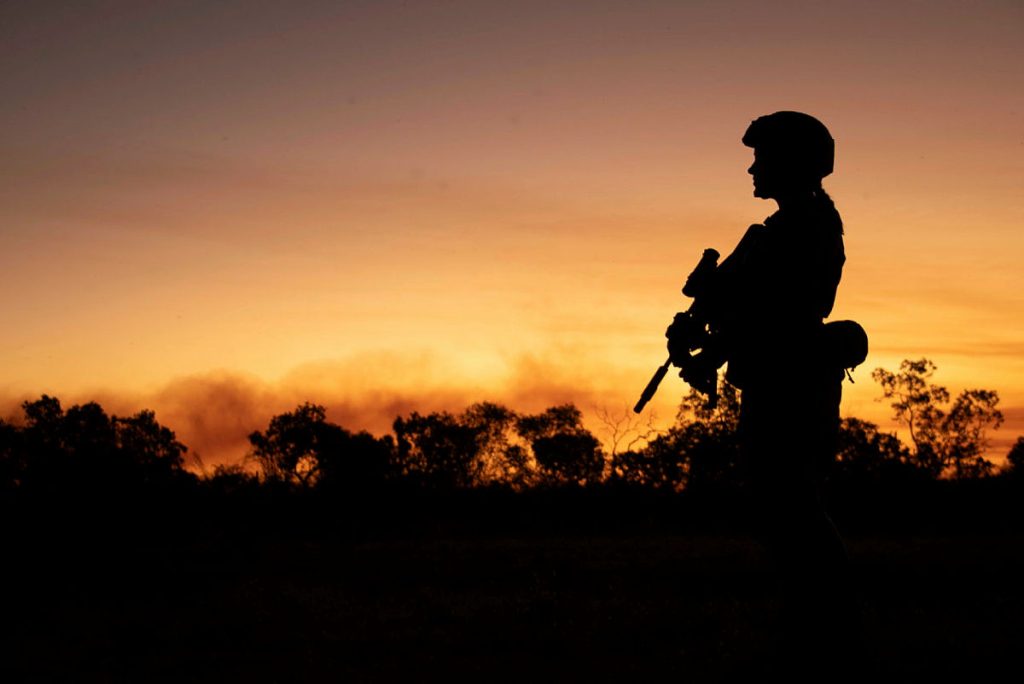
The world is again a dangerous place. A very real war is underway in Europe, while in the Indo-Pacific China is undertaking a rapid arms build-up, the political leadership in Beijing is making bellicose statements and aggressive grey-zone actions are being undertaken. Some hold that China might soon use military force to resolve issues such as Taiwan. In response, many governments are doing some hard thinking and crafting grand strategies. Japan and South Korea are just two. Australia is now busy as well.
The idea of grand strategy is simple. First, a grand strategy applies national power to try to improve the relationship one nation has with another. Second, a grand strategy doesn’t just apply power—it also builds the type of national power needed. Grand strategies are most important to states with limited power. These nations need to focus their scarce resources on their main concerns rather than waste them on trivial matters.
Australia has devised a balance-of-power grand strategy that, ‘underwritten by military capability’, will be of a scale ‘sufficient … to deter aggression and coercion’ and generate ‘a strategic equilibrium’. Such a grand strategy assumes that superior power determines outcomes. Superior power requires a nation to build up its military and economic power, form collective defence alliances with others, or both. This is a strategy of deterrence focused at the great-power level; Foreign Minister Penny Wong declares that the United States ‘is central to [this] balancing’.
Building the power needed to implement the grand strategy is most apparent in initiatives such as Australia’s acquisition of nuclear attack submarines under AUKUS, in announcements about new long-range missiles, in plans to upgrade Australia’s northern defence bases and in the offensive cyber capabilities being developed.
Less obvious are the steps to harden Australia against attack by strengthening societal resilience. This includes updating national security laws concerning foreign interference, espionage and sabotage; creating a powerful Department of Home Affairs; toughening the rules related to foreign investment and critical infrastructure; and introducing measures to protect Australians from misinformation and disinformation.
Looking beyond the great powers, Australia has also devised an accompanying engagement grand strategy focused on middle and small powers. This grand strategy involves working with others to achieve common goals. Australia says it will work with Southeast Asia and the Pacific ‘to enhance our collective security and prosperity’. Building the power needed for this is well underway. In the past few years, numerous bilateral and multilateral economic agreements have been reached with regional states. An Office of the Pacific and the Australia Pacific Security College have been set up. A national strategy seeking greater trade and investment between Australia and Southeast Asia has been announced.
The two grand strategies are considered not as alternatives but as ‘mutually reinforcing’. Supporting regional states to be more resilient to outside pressures is in harmony with the balance-of-power grand strategy. In this, having different strategies to achieve different outcomes is important. One grand strategy cannot alone achieve all a state seeks.
On the other hand, combining two different, contradictory approaches to grand strategy is problematic. Trying to stop others while working with them is inherently incoherent, as Britain’s grand strategy to manage Nazi Germany in the 1930s illustrated.
Some defence-related issues arise from the two grand strategies.
First, a balance-of-power grand strategy works by threatening or using violence. Australia accordingly needs to be ready—and to be seen to be ready—to wage war in conjunction with the other states. Collective defence means a coalition war; that’s a necessity because Australia can’t fight nuclear-armed great powers by itself.
In such a great war, it will be important for Australia to win—with winning defined as gaining a better peace after the war than before. For that, Australia needs to develop a war-winning military strategy. The 2023 defence strategic review advocated a defence strategy (about defence acquisitions) but not the necessary military strategy (about using military force). Michael Scott, a colonel in the Australian Army, argues that this is because of misunderstandings about what strategy is, a lack of recent military strategy formulation, and governmental organisational shortcomings. The national defence strategy coming in 2024 is unlikely to develop the military strategy that’s required to focus the raising, training and sustaining of Australia’s armed forces.
Second, the building-power side of defence seems underdone in both grand strategies. They each identify the need for a whole-of-nation effort, but in different ways. Two elements need early attention. Australian defence industry and defence innovation (technical and organisational) need to be integrated into each grand strategy. At the moment, these elements are seen as a ‘good’ in and of themselves, but they need to have a clear linkage to the strategies that explains what they are for, how they should be developed and what they should produce. Without understanding these aspects, allocating resources appropriately is at best serendipitous.
Finally, the balance-of-power strategy focuses on state security—the defence of Canberra’s parliamentary triangle, if you will. However, in recent years the defence organisation has been most active in human security—the protection of the Australian people. This is readily apparent in the domestic support given by the Australian Defence Force following natural disasters such as bushfires, floods and cyclones and during the pandemic, but it has been long undertaken in areas like border security, which deeply involves ADF maritime assets.
Overlaying this, the new engagement grand strategy would probably involve military activities related mainly to human security as a way to build friends and improve their national capabilities. This might include humanitarian assistance and disaster relief activities, search and rescue training, fisheries patrols and counter-piracy tasks.
State and human security overlap and they are both essential, but Defence arguably has inadequate resources to simultaneously address both sets of tasking given the increasing demands of each. Defence could be expanded or such tasks passed to new organisations, such as a new national coastguard.

